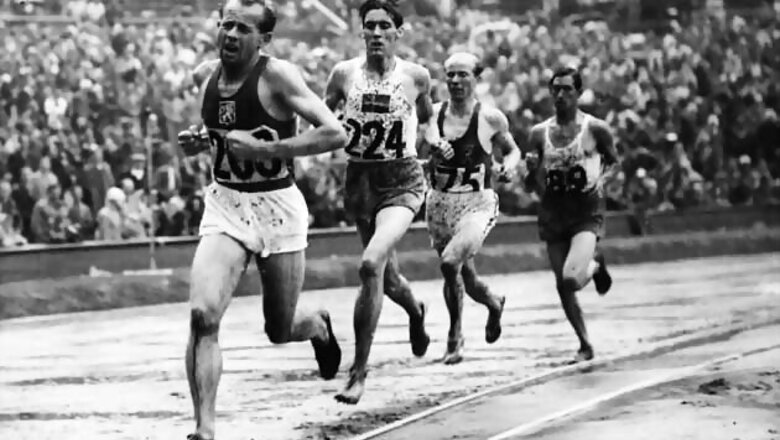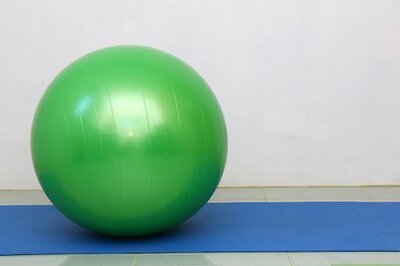
views
In the countdown to the 2012 London Olympics, we retrace some memorable achievements in the history of the Games. Today, a look at Emil Zatopek's 1952 success, Wilma Rudolph's triple gold and Abebe Bikila's marathon victory in 1960.
1952: Emil Zatopek becomes a sporting legend
Emil Zatopek, known as "the bouncing Czech" because of his ungainly running style, etched his name in sporting history by winning three gold medals at the 1952 Olympic in Helsinki - in the 5,000 and 10,000-metre races and in the marathon.
What he lacked in natural talent, Zatopek made up for with determination. At 5-feet-8 and weighing barely 66kg, Zatopek had an unorthodox running style that one critic likened to "the most frightful horror spectacle since Frankenstein". Prior to the Olympics, he had been advised by his doctor not to compete in the Games as he was suffering from a gland infection, but Zatopek was driven to succeed. And it was that drive that allowed him to achieve the possible in Helsinki, where he won gold in all three events within a space of eight days.
Despite his infamous style, in his 15-year career, Zatopek set 18 world records and is best known for his hat-trick in Helsinki - a feat never matched. Little wonder then that he is considered one of the greatest long-distance runners in the history of the sport.
1960: Wilma Rudolph claims triple gold
Wilma Rudolph's story was one of ambition over ability. Diagnosed with polio as a child, the Tennessee native overcame the odds to first win a bronze medal at age 16 at the 1956 Melbourne Games before winning three gold medals at the Rome Olympics four years later.
In Rome, the 5-feet-11, 69-kg runner became "the fastest woman in the world" and the first American woman to win three gold medals in one Olympics. She won the 100- and 200-meter races and anchored the US team to victory in the 4 x 100-metre relay, breaking records along the way.
In the 100 metres, Rudolph equalled the world record of 11.3 seconds in the semi-finals. In the final, she won gold by three yards in 11.0. In the 200 metres, she broke the Olympic record in the opening heat in 23.2 seconds. She won the final in 24.0 seconds. Rudolph then led the Americans to gold in the relay in 44.5 seconds, after setting a world record of 44.4 seconds in the semi-finals.
1960: Abebe Bikila goes barefoot in Rome
Twenty-four years after Ethiopia's capital was seized by Italy, an unknown and unheralded Abebe Bikila became the first black African gold medallist in Olympics history. And he did it running barefoot.
In 1960 Bikila, an Imperial Bodyguard for the Ethiopian Emperor, wound through the Italian capital, an occasion made even more atmospheric by being the first Olympic marathon to be run at night, and crossed the line in what was then a world best of 2:15:16.2. Before the race, he could not find a pair of running shoes he liked, so Bikila decided to run barefoot. With outstanding resolve, the 28-year-old outran all his opponents to become a part of sporting folklore.
Four years later, in Tokyo, he won again – this time with shoes.


















Comments
0 comment